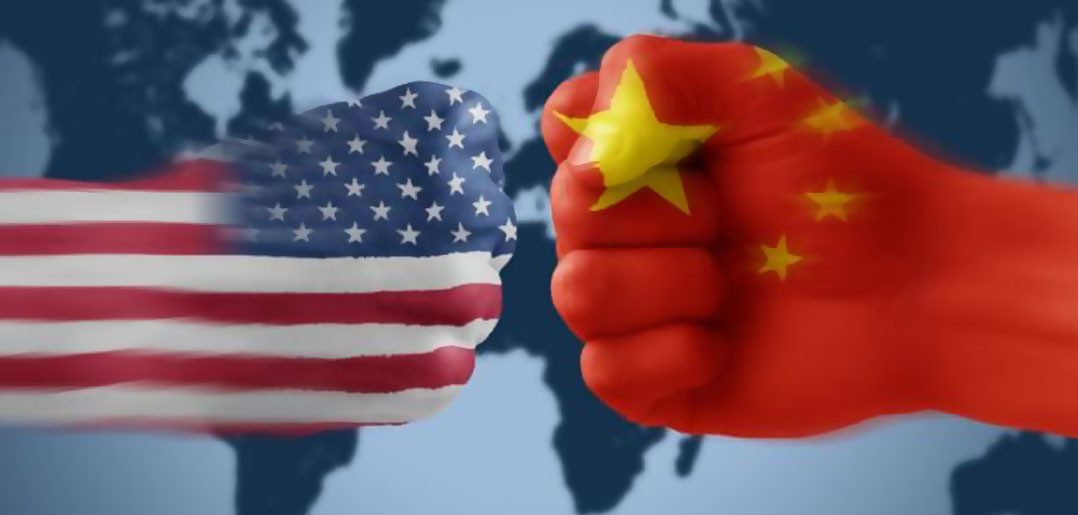Is trade war inevitable?
March 20, 2018 | Expert Insights

Reports have emerged that the US administration plans on slapping China with an immense package of US$60 billion (S$79 billion) in annual tariffs. The move is being initiated because President Trump has accused China of intellectual property infringement.
Background
The United States and China are two of the largest economies in the world. Both countries consider the other as a partner in trade and an adversary in geopolitics. Diplomatic relations between US and China was first established in 1844 with the Treaty of Wanghia. This agreement allowed the US to trade in Chinese ports. After the Qing Dynasty was overthrown, in 1911, the US recognized the legitimacy of the Republic of China (ROC) government.
The U.S.–China Strategic and Economic Dialogue was created in 2009. Every year, high level representatives from both nations open up dialogue to improve economic partnership. In 2017, the meetings that occurred were reported as being “tense”. Upon conclusion, the two countries cancelled a joint press conference and did not release a statement. They also did not release a plan of action.
US President Donald Trump has previously been a critic of China. He blamed the country for loss of jobs within the US and has often criticized the US trade deficit with China. China's trade surplus with the United States widened in 2017 while total foreign trade volume maintained rapid growth.
Experts have begun sounding the alarm about an impending trade war between US and China. Former Chief Executive of Hong Kong Tung Chee-hwa recently said that a trade war must be avoided. “In such a big relationship, there is bound to be disagreement, but rash action on either side will only create the environment for a very serious trade war, which is not good for any country. Patient discussion and negotiation, particularly considering the long-term prospects of the relationship, will be very important,” he said.
According to a report by New York Times, the most prominent trade war that took place in modern history was in the 20th century. The report notes that trade was “ignited by the Smoot-Hawley Tariff act of 1930, which imposed steep tariffs on roughly 20,000 imported goods. Led by Canada, America's trading partners retaliated with tariffs on United States exports, which plunged 61 percent from 1929 to 1933.”
Analysis
The annual tariffs will reportedly target technology, telecommunications and intellectual property. There are concerns in Washington that China’s treatment of intellectual property forces US companies to turn over their technological know-how in a bid to continue doing business in the region. An investigation into the matter is already being led by the U.S. Trade Representative Robert Lighthizer.
On March 2018, US President Donald Trump announced his intention to impose tariffs of 25% on imported steel and 10% on imported aluminum “for a long period of time”. China has registered its opposition to the tariffs. According to a report from Reuters, “China tariffs may be subject to a public comment period, which would delay their effective date and allow industry groups and companies to lodge objections.”
In the meantime, the US Chamber of Commerce recently released a statement urging the US President not impose “sweeping tariffs” as it will only affect the American economy. “The administration is right to focus on the negative economic impact of China’s industrial policies and unfair trade practices, but the US chamber would strongly disagree with a decision to impose sweeping tariffs,” US Chamber of Commerce president Thomas Donohue said in a statement. “As we’re starting to see, tariffs could lead to a destructive trade war with serious consequences for US economic growth and job creation. The livelihood of America’s consumers, businesses, farmers, and ranchers are at risk if the administration proceeds with this plan.”
In February 2018, top officials from the US and the Chinese administration held talks to ensure that the two countries did not end up in a trade war. At the time, Treasury Secretary Steve Mnuchin said that Liu He (newly appointed Vice Premier of China) was among the key members part of the ongoing discussions. “We’re in active discussions with [China] about our trade issues,” Mnuchin confirmed at a US Chamber of Commerce event in Washington. “The president has been very clear from his first meeting with President Xi that we have a large trade imbalance. Our objective is to shrink that imbalance. … Our desire is to increase exports to shrink that,” the treasury secretary said. He added, “On a high level, [the Chinese] understand that and they want to do that. Our objective is not to get into a trade war.”
Assessment
Our assessment is that history has taught us trade wars are extremely damaging. China and the US are the two largest economies in the world and a trade war between them could negatively impact the world economy and hit the world GDP by 1-3 percentage points in the next few years. It is imperative for both nations to prevent this diplomatically. However, as America increases its tariffs, China has vowed that it would retaliate appropriately. These trade wars can become causes for large conflicts already in a world that is fraught with tension.








Comments